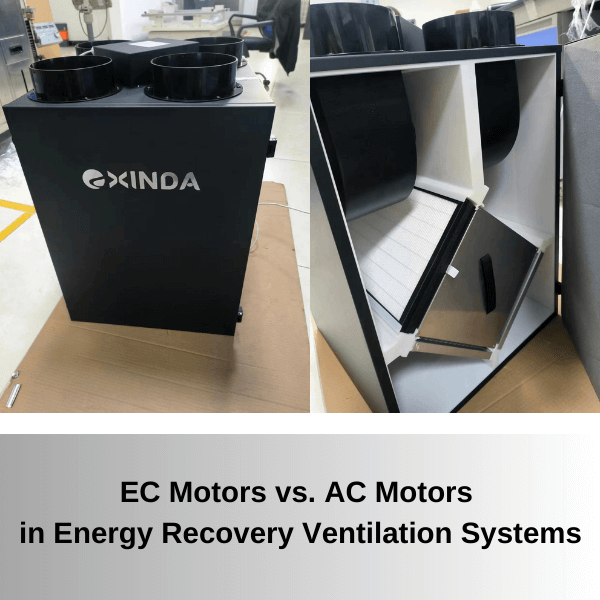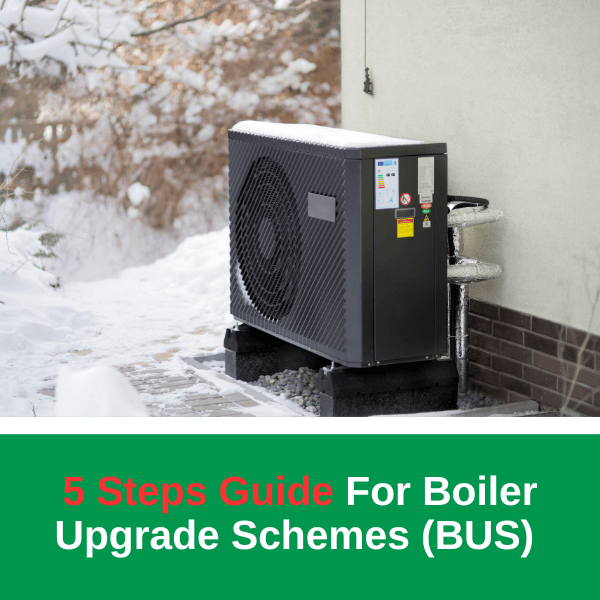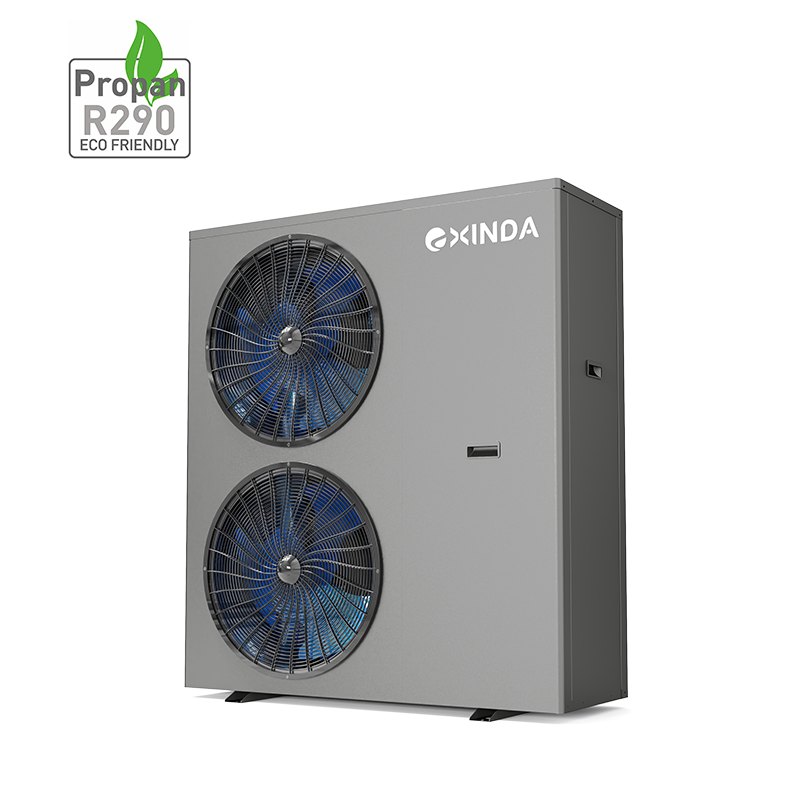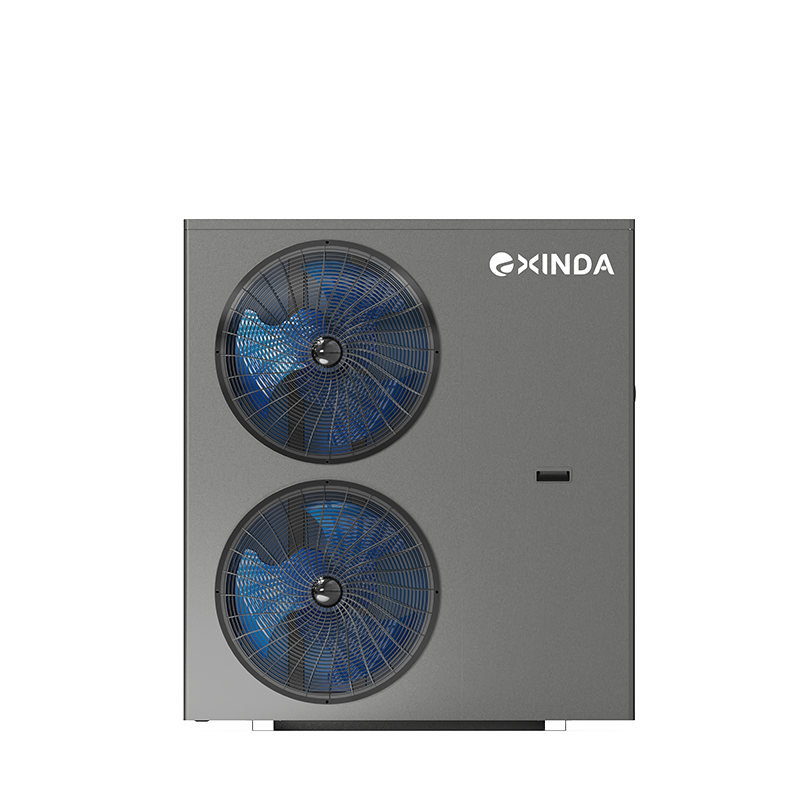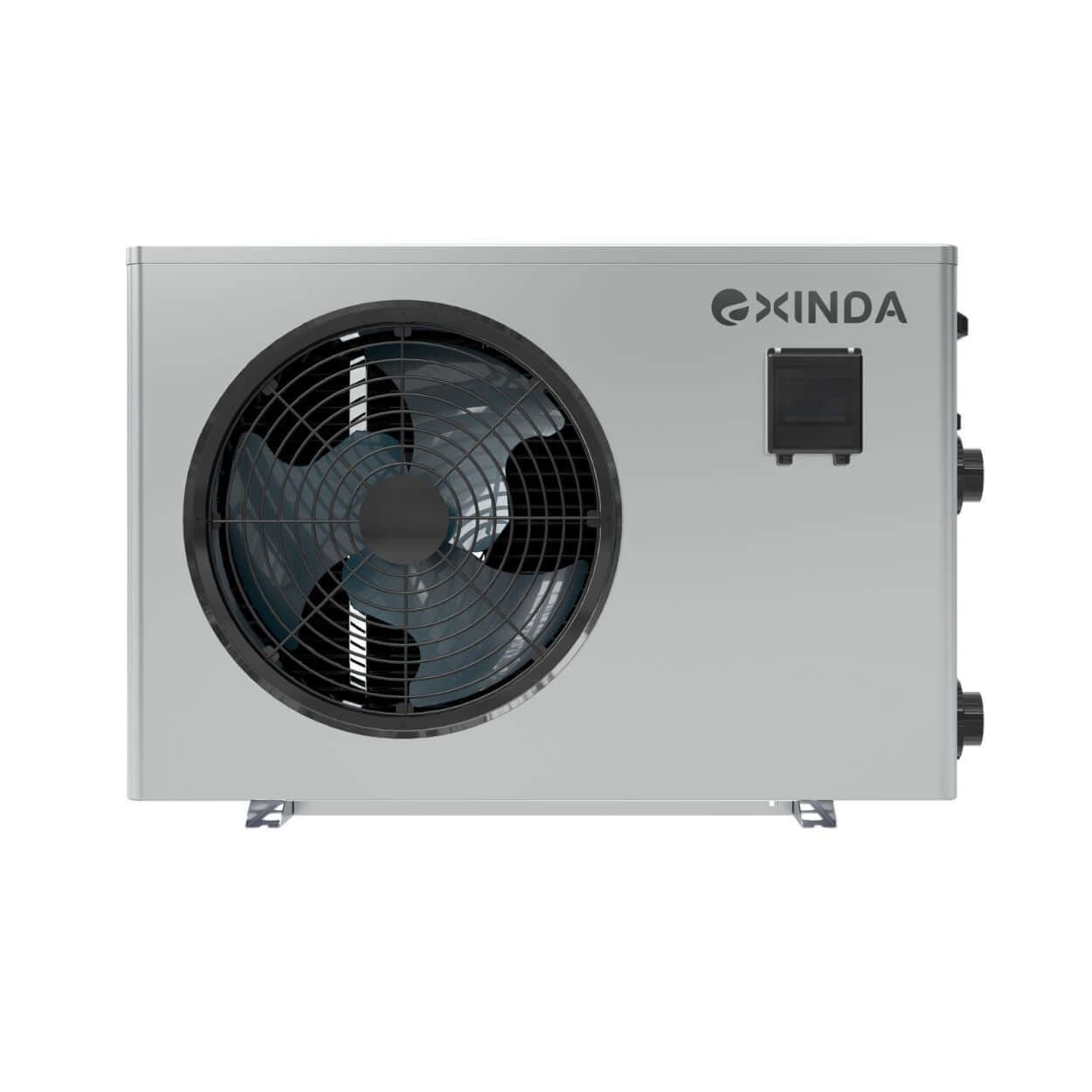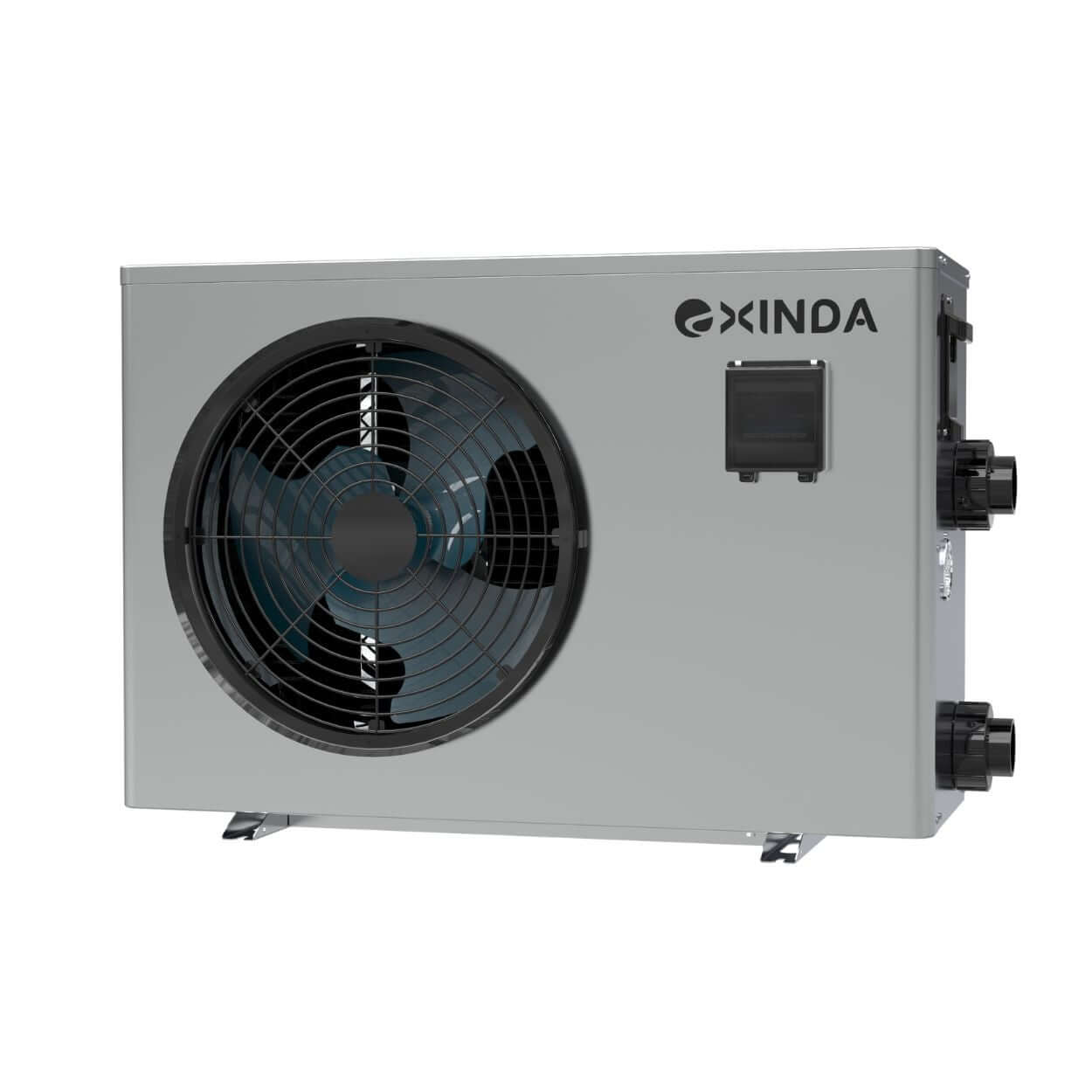
New Boiler Upgrade Scheme Policy
The UK government has taken a key initiative by introducing the Boiler Upgrade Scheme (BUS) in the global effort to combat climate change and advance energy transformation. This program not only signifies the UK's shift towards cleaner, more sustainable energy solutions but also injects new vigor into the expansion of the heat pump market through economic incentives, namely the BUS vouchers.
The primary goal of the Boiler Upgrade Scheme is to encourage households and businesses to move away from traditional fossil fuel boilers and adopt more environmentally friendly heat pump systems. These heat pumps utilize the heat from the ground or surrounding air to heat buildings, significantly reducing greenhouse gas emissions.
To achieve this, the UK government offers financial subsidies through the BUS program, in the form of BUS vouchers, which can be used to offset the cost of installing heat pump systems.
1、Potential Challenges Faced In the UK
Regulatory framework challenges: Existing regulations impact the quality of the UK's housing stock; fabric issues necessitate pre-installation fabric upgrades in some cases, to avoid increased running costs; and the price of electricity relative to gas complicates regulatory opportunities, especially in fuel poverty contexts.
Challenges in New Builds and Developer Engagement: A limited number of heat pump installers may present concerns for developers considering large-scale heat pump projects. Additionally, developer-led programs play a nuanced role in shaping the demand for heat pumps, influencing both the sector's growth and the supply of skilled installers.
Boiler upgrade scheme (bus) limitations: The BUS grant is insufficient if additional fabric and system upgrades are required; many owners are unaware of the pre-application of necessary additional upgrades; lack of coverage deters owners who require additional upgrades; and low BUS grant uptake sends mixed signals back to policy maker.
Electricity vs. gas dilemma: Consumer decisions are influenced by electricity and gas price differentials; shifting levies onto gas may worsen social tenant fuel poverty; and concerns over fuel poverty limit policymaker options.
2、Research on Google Search Trends for“Air to Water Heat Pump”
 "ashp" is trending upwards in google trends
"ashp" is trending upwards in google trends

"air to water heat pump" is trending upwards in google trends
According to the data from Google Trends, the overall demand is rising, but the demand from March to August is stable. By the end of October, the demand for ASHP surges. On the one hand, the demand for winter increases, and on the other hand, the government's High subsidy plan in December
3、UK Policy High Subsidies Bolstering Heat Pump Market Prospects
The UK government, demonstrating its commitment to fostering low-carbon technology, has announced a notable increase in grants for air source heat pump installations for homeowners in England and Wales. This enhancement will boost the grant amount by 50%, taking it up to £7,500, thereby making sustainable heating solutions more accessible and affordable for the public.
The additional £2,500, supplementing the existing £5,000 grant, is strategically aimed at making the cost of installing an air source heat pump more competitive, ideally lower than the average cost of installing a gas boiler. This initiative reflects the government's commitment to making sustainable energy options more accessible and affordable to the public.
Furthermore, the support for installing ground source heat pumps, another sustainable heating solution, will also see an increase from £6,000 to £7,500. However, it's important to note that ground source heat pumps might not be suitable for many homes in the UK, as they often require a substantial outdoor space for installation.
In addition to these financial incentives, there's a discussion about the 2035 plan to potentially soften the proposed ban on new gas boilers. This consideration indicates a balancing act by the government in its approach to transitioning towards greener energy solutions while addressing the practical and immediate needs of homeowners.
4、Major Heat Pump Concerns Among UK Residents
Noise Level Concerns and Regulations
One of the primary concerns for UK residents regarding heat pumps is the noise level. Recognizing this, the government will revamp the rules for installing heat pumps to minimize noise pollution.
The new regulations will require that heat pumps be installed at least one meter away from property boundaries. This measure aims to ensure that the noise generated by a heat pump does not exceed 42 decibels (dB) within one meter of a neighbor's door or window, thereby addressing concerns about potential disturbances in residential areas.
Corrosion Resistance for Coastal Areas
As an island nation, the UK needs heat pumps that are resistant to corrosion and rust, especially in coastal areas. This demands materials and designs that can withstand marine environmental conditions.
Climate Adaptability and High COP
The UK's humid, marine climate necessitates heat pumps with automatic weather compensation and high Coefficient of Performance (COP). These features ensure efficient operation in varying weather conditions.
Standards and Skilled Installation
Success in the UK heat pump market hinges on adherence to UK or EU standards and simple installation processes. Additionally, installers must be well-trained to ensure safe and efficient setups.
Leakage Detection for Propane Systems
If propane refrigerants are used, effective leakage detection is crucial for safety. This is essential for preventing risks associated with propane in heat pumps, ensuring both environmental and residential safety.
5、Exinda's Responsive Measures to Address Market Concerns
i.Noise level less than 38db
 Silence test of Exinda heat pump
Silence test of Exinda heat pump
Firstly, The Exinda heat pump is 38dB(A) at a 2.1-meter distance neighbor fence(Min. Flow). We have our specific design of noise reduction with two layers of special materials to the compressor part to prevent sound transmission and output from the source.
Second, we intend to do the test in our lab for a long time at different working temperature conditions, and engineers will monitor the test situation in real time.
Nigh silent mode
Local time: (21: 00 PM-5: 30AM), enter silent mode
Local time: Before 9:00 PM, run at medium to high frequency to meet the water temperature
ii.Advanced Corrosion and Rust Prevention in Exinda Heat Pumps
Exterior Durability Enhancements
- The outer casing of the unit is crafted from robust galvanized metal.
- A protective coating is applied post-cleaning for added resilience.
- The unit features high-grade, corrosion-resistant fasteners, including stainless steel bolts and specially treated screws.
- It successfully withstands a rigorous 1000-hour neutral salt spray test, demonstrating exceptional durability.
Condenser and Radiator Protection
- The condenser and fin radiator are coated with a nano-material, ensuring they remain unaffected by the corrosive seaside environment. This treatment guarantees longevity and reliability, even in salty and humid conditions.
These strategic enhancements in Exinda's heat pumps ensure they are well-suited for the UK's coastal areas, offering long-lasting performance free from corrosion and rust.
iii. Safety Measures
 Exinda heat pumps feature safety devices for residential use
Exinda heat pumps feature safety devices for residential use
Safety guarantee should be noticeable for R290 flammable A3 refrigerant, our heat pump system is equipped with a Microbubble valve/safety valve /check valve to ensure no refrigerant leakage travel into the house.
iv.Heat Pump High Performance of Features  The heat pump features A+++ energy efficiency at both W35 and W55, indicating superior performance. It has a high Seasonal Coefficient of Performance (SCOP) of 5.24 at W35 and 3.86 at W55, ensuring effectiveness in different climates. Additionally, it maintains a low noise level of 65dB, suitable for quiet environments.
The heat pump features A+++ energy efficiency at both W35 and W55, indicating superior performance. It has a high Seasonal Coefficient of Performance (SCOP) of 5.24 at W35 and 3.86 at W55, ensuring effectiveness in different climates. Additionally, it maintains a low noise level of 65dB, suitable for quiet environments.
v.Weather compensation curve
A weather compensation system uses an outdoor temperature sensor to monitor what the latest external temperature is and the system is constantly adjusting the flow temperature of the water in your rads/ufh in response.
The key to weather compensation is finding the curve setting that matches the heat loss of the room/house with the amount of heat put back into the rooms.
Too high a curve setting and you’ll put too much heat into rooms, which wastes energy. Too low a curve setting and the rooms won’t get up to your indoor target temperature. The curve is akin to a Goldilocks setting – not too hot, not too cold, but just right.
vi.European installation standards - Easy Installation

Same as the EU/UK installation system which is simple for the plumber/installer and easy to install/maintain/repair, no need to take much to familiar with the installation system
vii. Exinda heat pump reliability test
The heat pump's stable and highly efficient performance is not only decided by one of the parts. but ultimately depends on the various components/sensors/main control that can optimize the design combination to meet different ambient temperatures, to achieve the highest COP value.
We have our heat pump passed 170 must-test items and 42 optional test items, also our heat pump can pass the market random test.
We sent our heat pumps to be placed in different ambient temperatures to test in a whole winter time to guarantee high longevity and high reliability.
About Exinda
- Professional R&D team above 30 people.
- Professional heat pump product testing evaluation system and test resources, to ensure stable and high reliability.
- Complete supply chain system, with international well-known supplies such as Alfa LAVAL, Wi LO, NIDEC, SENSATA... to ensure longevity.
- With advanced intelligent manufacturing technology production lines and processes.
- Provide the whole industry chain service of heat pump products
- Pre-sales technical support, providing selection data, in line with market access certification ERP, CE, UL/ETL
- After-sales installation guidelines
- Real-time user Q&A (remote data analysis, diagnosis, and adjustment)
- Warranty plan (three years for whole product)
- Accessories (spare parts) can be adapted according to demand
- Rich experience in the heat pump industry, can meet customer customization needs
- Compared with large companies, Exinda can respond quickly and flexibly adjust its capabilities and can adjust and develop products promptly to match market trends and needs.
If you want know more about R290 air to water heat pump, please visit our website.


